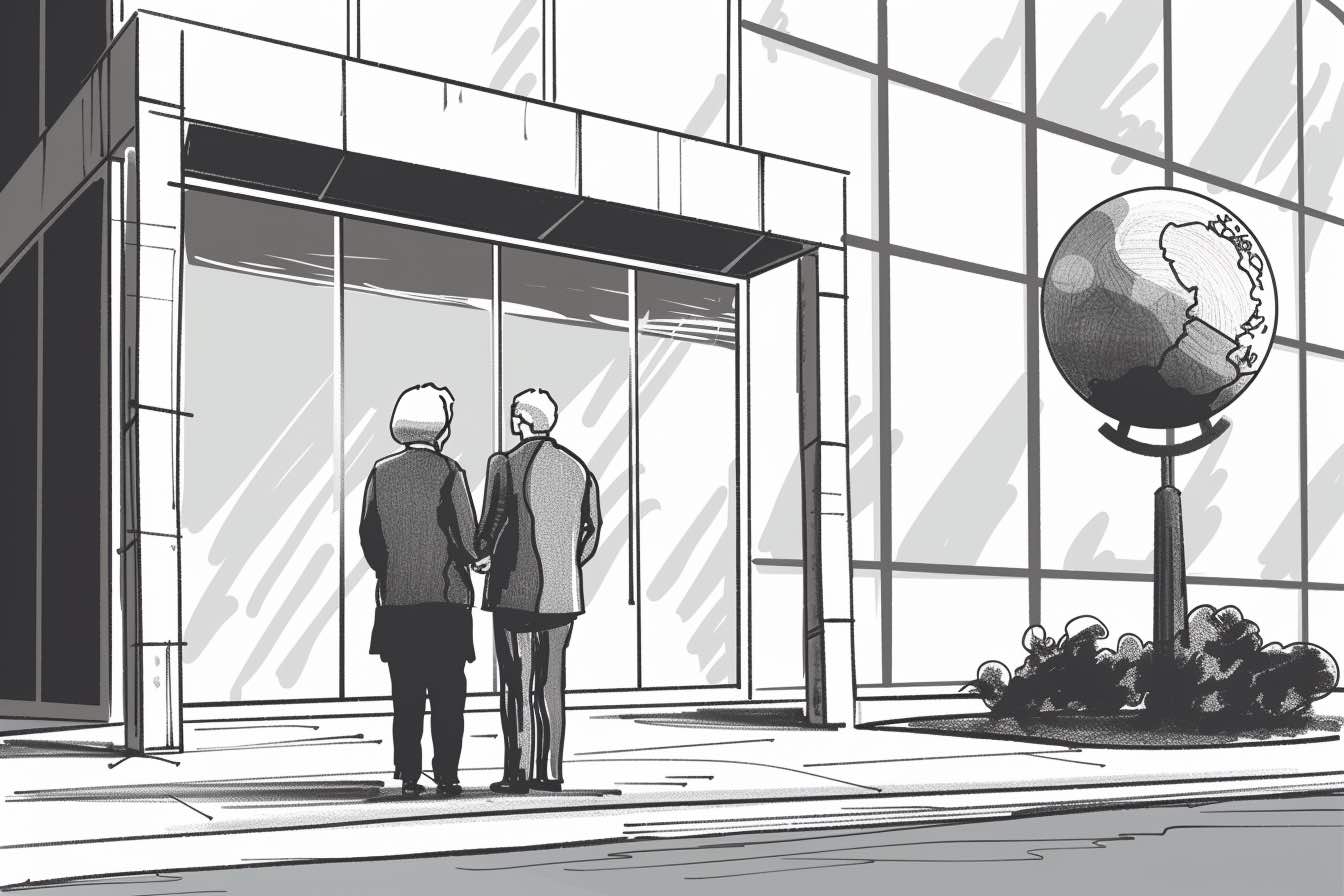Lisa Larson’s road to a new car took an unexpected turn when a CarMax appraisal exposed a secret that wrecked the value of her trade-in vehicle. But is this an insurmountable roadblock — or an opportunity for consumer justice?
Larson, who bought a 2017 Toyota Highlander from a CarMax location in Renton, Wash., back in July 2022, was in the market for a new set of wheels. So she returned to CarMax to inquire about trading in her vehicle for a newer one. She was astounded to discover that the value of her car had plummeted from its original purchase price.
“CarMax now values the car $16,000 less than when they sold it to me 15 months ago,” she says. “I feel completely taken advantage of.”
How could that be? When you find out, you might have second thoughts about buying a used vehicle. As we navigate toward a resolution, we’ll address these questions:
- How does CarMax appraise its vehicles?
- Can a car dealership change the appraisal value based on past accidents?
- What are my rights if a car dealership didn’t disclose a previous accident?
But first, let’s get to Larson’s sad story.
An accidental discovery after a CarMax appraisal
CarMax is the largest used car retailer in the United States. Larson bought her Toyota Highlander through CarMax last year, and she said it was a positive experience. She paid $36,000 for the car and used it to commute 70 miles a day to work.
“I needed to consider a more fuel-efficient vehicle, so I didn’t think twice about coming back for an appraisal and to check out the current inventory at CarMax,” she told me.
But when she visited the Renton location on a recent Sunday, she found herself coping with less positive emotions, including disappointment and betrayal. She asked a CarMax employee how much the company would credit her for her Toyota.
“I was surprised when I sat down with an associate, who showed me an extremely low offer,” she says.
According to CarMax, the vehicle was worth $20,000 — that’s $16,000 less than when she purchased it.
Larson faced the cruel math: a Toyota Highlander depreciates about 21 percent annually.
Still, by her calculations, the vehicle should be worth about $28,000.
“The associate explained the reason was that the car had an accident on the report,” she says. “This accident showed a date in 2019, which is three years before I had purchased the car. And when I did purchase the car in 2022, the report I was given showed no accidents.”
She wants CarMax to refund the price difference or buy back the car.
So what’s going on here?
How does CarMax appraise a vehicle?
CarMax considers several factors when determining its appraisals, which are provided free to customers. I had a lengthy conversation with a CarMax representative about the appraisal process.
According to the company, here’s what goes into an appraisal:
A visual inspection by a professional
This is handled by a trained CarMax inspector. The process takes about half an hour, and the inspector will visually inspect the exterior and interior of the car or truck.
A review of the vehicle history
Next, CarMax checks the vehicle’s history by looking up the VIN or license plate number. In Larson’s case, it provided a report issued by Exeperian’s Autocheck service, which searches a VIN database for repair and ownership records.
An appraisal offer
Finally, CarMax issues a written offer valid for seven days. The offer contains the finding of the inspection report and vehicle history and contains a firm offer. CarMax has a reputation for not negotiating on prices, and that includes appraisal offers. The price they offer is the price they pay, period.
By the way, it would be fair to say that CarMax has changed the way people buy used cars. The company pioneered two key concepts in car buying. First, it opened massive warehouses with used vehicles (think Costco meets your Toyota dealership). And second, it did what Saturn Motors couldn’t — it insisted on not haggling over price. If you buy a used car from CarMax, it won’t negotiate.
But should CarMax make an exception for Larson?
Can a car dealership change the appraisal value based on past accidents?
A car dealership can lower the appraised value of your car, but only under certain conditions. I’ll get to that in a moment.
CarMax is correct. An accident can further accelerate the depreciation of a car, by as much as 25 percent. In other words, it could devalue Larson’s Highlander by as much as 46 percent after finding the accident.
Larson’s problem goes to the heart of how a car dealership (or an insurance agent) determines a car’s value. In addition to its accident history, there are a lot of other variables, including its make, model, features and mileage.
It mattered less that Larson had bought her car from CarMax. The company uses a sophisticated appraisal algorithm that takes all these variables into consideration and then gives it a number. And that number was $20,000.
But can Larson reverse the transaction and get her money back?
Is it possible to return a car to CarMax if you have a problem with your vehicle?
CarMax has a 30-day money-back guarantee on all vehicles. If you have a problem with your car, you can return it to any CarMax store within 30 days and 1,500 miles of purchase. CarMax will refund the full purchase price, minus any fees and taxes.
To return the vehicle to CarMax, here are the steps:
- Call CarMax Customer Service at 1-800-CAR-MAX-1 (1-800-227-6291).
- Tell the representative that you would like to return your car.
- Provide the representative with your mileage and any other relevant information. You must have the original purchase paperwork with you.
- Schedule an appointment to return the vehicle to a CarMax store.
CarMax does not accept vehicle returns after 30 days, let alone 15 months. It appears Larson was stuck with her previously damaged Toyota.
Surely, there are laws to protect people like Larson. Let’s investigate.
What are my rights if a car dealership doesn’t disclose an accident on a used car I purchase?
In the United States, it is legal to sell a car that has been previously damaged and repaired. There are no disclosure rules that would require a used car dealer to tell you about the damage. But that doesn’t mean you don’t have any rights.
Ask about previous repairs
If you ask a dealer about previous damage, the dealer must disclose any repairs. Failure to do so could be considered fraud.
Check the repair record
You can run a report on CarFax or InfoTracer and find out if the car you’re considering has been previously repaired. If it has, you might be able to negotiate a lower rate or consider a different vehicle.
Invoke state lemon laws
Your state’s lemon laws may protect you if you bought a used car. Connecticut, California, Massachusetts, Minnesota, New Jersey, New Mexico and New York have laws that protect people who buy used cars. For example, Connecticut prohibits dealers from making any “false, misleading, or deceptive statements about a used motor vehicle’s condition or history.” In other words, if your dealer says it’s “like new” and it’s been in a crash and repaired, you might have a strong case.
But is Larson protected by one of her state’s lemon laws?
Can she get her $6,000 refunded?
Question is, can Lorsen get a refund of the difference between the normal depreciation and the depreciation with the damages factored into it?
Larson decided to ask, so she wrote an email to the CarMax location (I also publish executive contacts for CarMax on this site).
Larson: The vehicle history report I received on 7/27/22 from Carmax showed no accidents. This does not match the information I was given from your team on 10/22/23, which shows an accident from 2019 on the vehicle history report.
I would not have purchased this vehicle had I known it was in an accident. CarMax provided me with false information on its history and I do not feel safe driving it. And after receiving your voicemail stating that most of what was reported previously has been fixed, I feel even more unsafe driving it.
I want to return the car and receive my money back. This transaction should never have occurred, and would not have if I had been provided accurate information prior to me purchasing it.
CarMax: We are sorry about your frustration with this situation. We can appreciate not wanting to purchase a vehicle that has prior accidents. At the time of purchase, neither CarMax or you had any reason to believe that it did have previous accidents.
Until your recent appraisal, you have given us no indication that there were any mechanical issues or driving issues or any reason to believe your Highlander hasn’t been a safe and good car for you and your family.
At this time, we do not feel we would be obligated to re-purchase this vehicle back from you and your vehicle would not qualify for a return due to time and mileage since purchase.
In other words, no.
What does CarMax have to say about this?
I asked CarMax if this was its final answer. A representative called me, and we had a lengthy discussion about Larson’s case.
“There are quite a few factors that go into determining a vehicle’s value, including age, mileage, how well the vehicle has been maintained, current used vehicle market pricing, and more,” a representative explained.
The biggest factor may have been the added mileage. She had put 30,000 miles on the vehicle in just 15 months, according to CarMax.
CarMax says it did not conceal anything from Larson when she purchased the car in 2022. It didn’t have a record of the 2019 repairs, and Autocheck didn’t show any repairs. Sometimes, repairs are reported to Autocheck later, so my contact speculated that’s why Autocheck showed the repairs in 2023.
A CarMax representative underscored that appraisals are done by the book and are objective. An appraiser inputs mileage, the vehicle’s age and condition, and the algorithm delivers a trade-in value. She said it’s far likelier that the vehicle’s mileage was pulling its valuation lower, on account of being driven 70 miles a day. CarMax also says AutoCheck did not affect Larson’s appraisal offer.
CarMax noted that Larson was free to sell her Toyota privately. Our advocacy team did some research and concluded that Larson’s vehicle would fetch between $20,000 and $22,000 based on the Kelley Blue Book valuation.
The CarMax representative said valuations change and invited Larson to come back to the dealership to get a new appraisal.
Your car is a depreciating asset
Having a car is like owning stocks in a really bad year, like 2008. Except every year is like that. Asking your dealership for a trade-in can feel like the final insult. A dealer usually offers the wholesale value of the vehicle, which is less than what you’d get from a private sale.
I’m afraid Larson’s best chance at recovering her money is to sell her vehicle somewhere else. But there’s a chance that the new appraisal might reveal an error in the previous one. It’s worth a shot.
About this story
In 2020, I sold my Honda CR-V back to the dealership I bought it from less than two years before. It did almost exactly the same thing CarMax did to Larson, and I lost about $10,000. But the dealership had me where it wanted me. I had a ticket from Phoenix to Lisbon the next day, and I had to sell. I’m sure the dealership turned around and resold the car at a tidy profit — as CarMax will do if Larson sells her Toyota. I’m grateful to everyone who helped with this story, including my advocacy team, editing team and art department. You know who they are!




